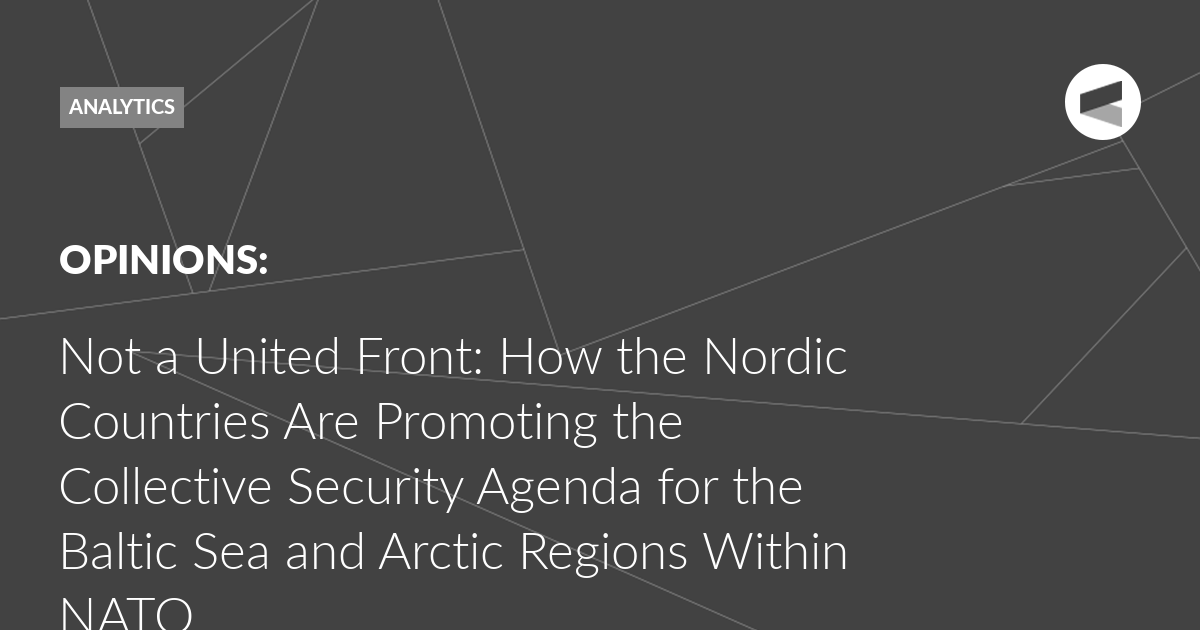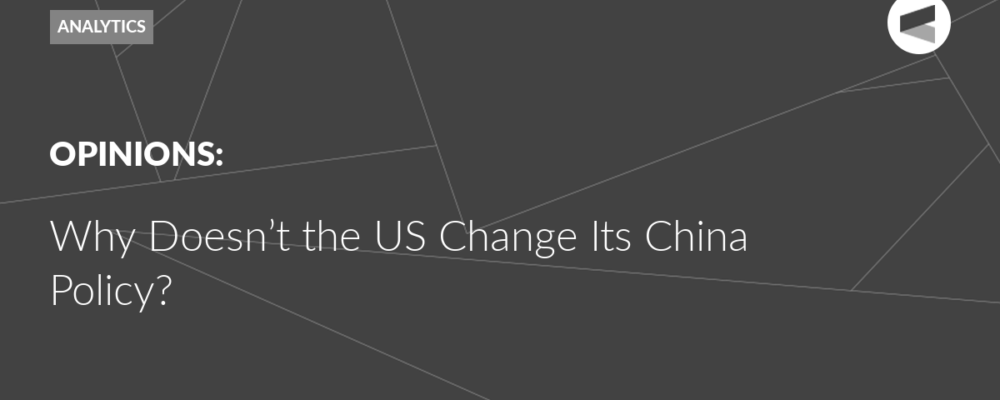The events of February 2022 provoked a sharp change in rhetoric among the authorities of the Nordic states and pushed two countries that had not previously planned to join the alliance to take more decisive action. Thus, it can be said that from their point of view, NATO has become the only option for articulating and ensuring their military-political interests in the Baltic Sea region and in the Arctic.
The Baltic Sea and the Arctic Ocean in the strategic documents of the Nordic countries
The policy of the Nordic countries within NATO can be considered from the point of view of the conceptual pairs of foreign policy analysis by R. Pedersen (2012) (Pedersen, R.B. (2018), Was something rotten in the state of Denmark? Three narratives of the active internationalism in Danish foreign policy, Cooperation and Conflict, no. 53(4), pp. 449-466.), “activism-determinism”, and “internationalism-adaptation”. The Northern European states, while pointing to the high importance of coordinated military-political activities of NATO in the Baltic and Arctic regions in their foreign policy concepts and speeches, nevertheless pursue a disjointed policy, choosing for themselves those aspects that are closer and more important.
NATO newcomer Sweden, in its foreign policy declaration on NATO membership from March 20, 2024, notes “cohesion”, NATO dominance in the Baltic and Arctic regions and “power”. In the Arctic strategy it adopted four years earlier, NATO is mentioned only once, and the importance of pan-European security is placed at the forefront.
The second newcomer to the alliance, the Republic of Finland, directly points in its government report on foreign and security policy from June 20, 2024 to “the importance of strengthening NATO’s deterrence and defence in Northern Europe”.
Two more documents should be noted. In the Finnish Arctic Strategy of 2021, NATO is mentioned only once. The same Finnish government report from 2024 addresses Finland’s new role in the Arctic, where NATO’s significant role is outlined.
Finland views common European security, as well as Nordic cooperation, to a lesser extent, as a necessary element in constructing its own security architecture.
There is also a divergence of positions among the Nordic countries which helped establish NATO – Norway, Denmark and Iceland. In his foreign policy report on March 5, 2024, Norwegian Foreign Minister Espen Barth Eide drew attention to the fact that over the past 75 years of NATO’s existence, the focus has shifted to the European region, and “Norwegian understanding of the situation in the North has become even more important for NATO.”
The Norwegian Arctic Strategy of 2021 devotes an entire paragraph to NATO, which clearly states that the alliance is the main guarantor of security in the Arctic.
In the Danish Foreign and Security Policy Strategy of 2023, NATO is indicated as the main military-political player that opposes Russia and China. The document also articulates the high importance and “special responsibility” of Denmark and its Nordic allies for security in the Baltic Sea region. The Baltic countries also fall under Denmark’s protection, since they “feel particularly exposed to military and hybrid threats from Russia.”
Denmark thus sees itself as central to the security architecture of the Nordic countries. NATO is positioned as the leading military-political structure in the Arctic despite the expiration of the Arctic Strategy of the Kingdom of Denmark for 2011-2020.
In parliamentary resolution No. 25/151 on Iceland’s policy towards the Arctic region, published in October 2021, NATO is mentioned three times. But despite its traditional military-political cooperation with the United States, Iceland opposes the militarisation of the Arctic, and puts forward ideas for the sustainable development of the region.
Among its northern European friends, Iceland occupies the most modest place in matters of military-technical cooperation within NATO, even in the Arctic region, which is important for it.
Implementation in practice – the North is burning
The Nordic countries have been implementing their collective security policy since 2009 within the framework of the Nordic Defence Cooperation (NORDEFCO), which mainly addresses technical issues, but also allows for the unification of some aspects of defence. The very fact that the Nordic countries are able to unify and harmonise on such a sensitive area as defence is an important signal to the outside world about the possibility of providing a single and consolidated position on this region in the defence sphere. But are the Nordic countries really united?
Of course, there are a number of exercises that have been conducted by countries over a long period of time – every two years since 2013, the Arctic Challenge Air Force exercises between Finland, Norway, Sweden and Denmark have been held within the framework of NORDEFCO cooperation. From May 29 to June 9, 2023, Finland, Sweden, Norway and Germany, which joined them, participated in the Arctic Challenge Air Force Exercise (ACE 23).
However, can we say that NORDEFCO can fully replace cooperation within NATO? The answer is obvious. The reunification of Crimea with the Russian Federation in 2014 changed the vector of defence and security policy of the Nordic countries. Finland and Sweden outlined a strategy of gradual rapprochement with the alliance through participation in the Enhanced Opportunities Programme, which subsequently led to the fact that in 2016 the countries allowed the alliance to transfer troops to their territory, and in 2017 they joined the NATO Joint Expeditionary Force.
In 2023, Finland and Sweden signed bilateral military agreements with the United States, allowing American personnel and weapons to deploy mobile bases on the territory of their countries.
The new member states are quite actively promoting their positions within the alliance, albeit each in its own way. Sweden remilitarised the island of Gotland in 2016 and has noted its importance for positioning the Baltic Sea region as a single strategic territory. We can say that Sweden continues to promote pragmatism in its foreign defence and security policy, not forgetting about itself and its military-political industry first and foremost.
Finland, in turn, is more actively promoting its defence policy, and participating at the level of top state officials in the expanded “Northern Response” drills, which took place on the Sennalandet Fjäll plateau in Norway from March 4-15 2024. The President of the Republic of Finland Alexander Stubb attended these exercises together with the Prime Minister of Norway Jonas Gahr Støre.
Also, from November 18 to 24, 2024, Operation Ice Wind 24 took place in southern Finland and the northern part of the Baltic Sea. Troops from the United States, France, Germany, Denmark, Finland, Sweden, Estonia, Latvia and Lithuania took part in the operation. The importance of Finland’s participation in NATO military exercises is widely articulated both in the national media and in the speeches of the country’s leading politicians.
The Valdai Discussion Club was established in 2004. It is named after Lake Valdai, which is located close to Veliky Novgorod, where the Club’s first meeting took place.
Please visit the firm link to site






